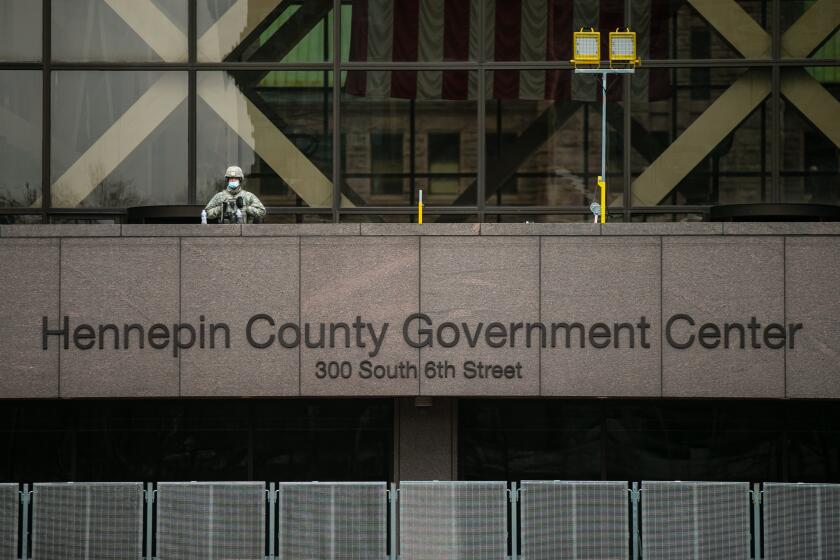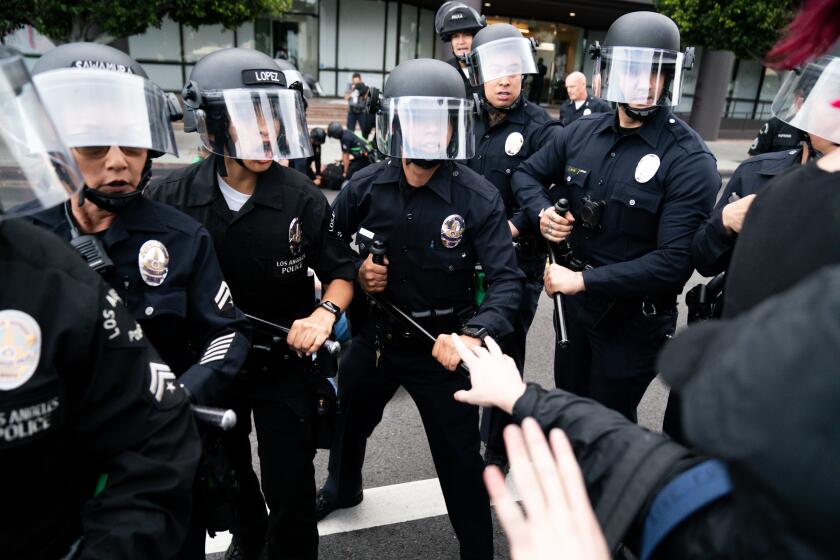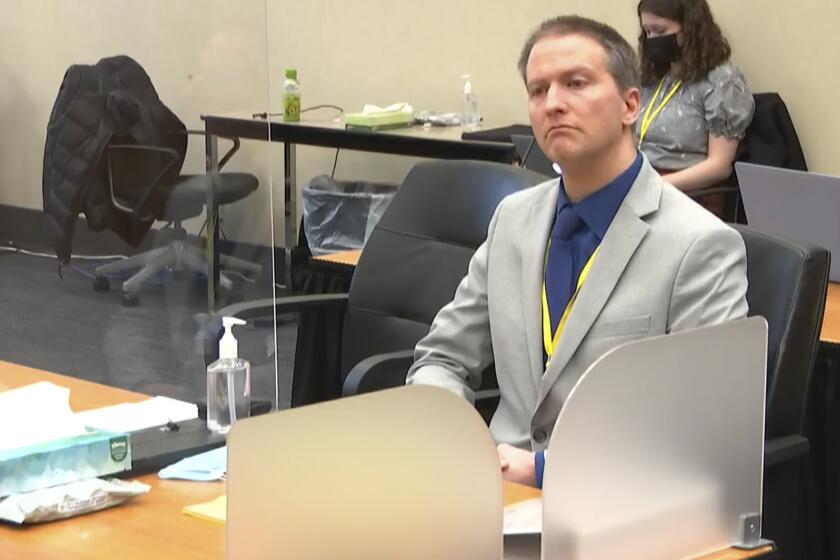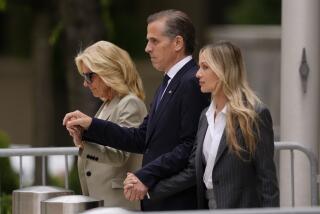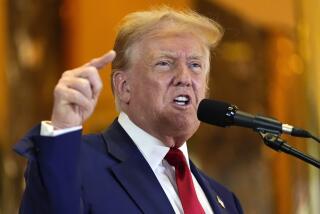Biden administration weighing how to respond after verdict in Chauvin trial
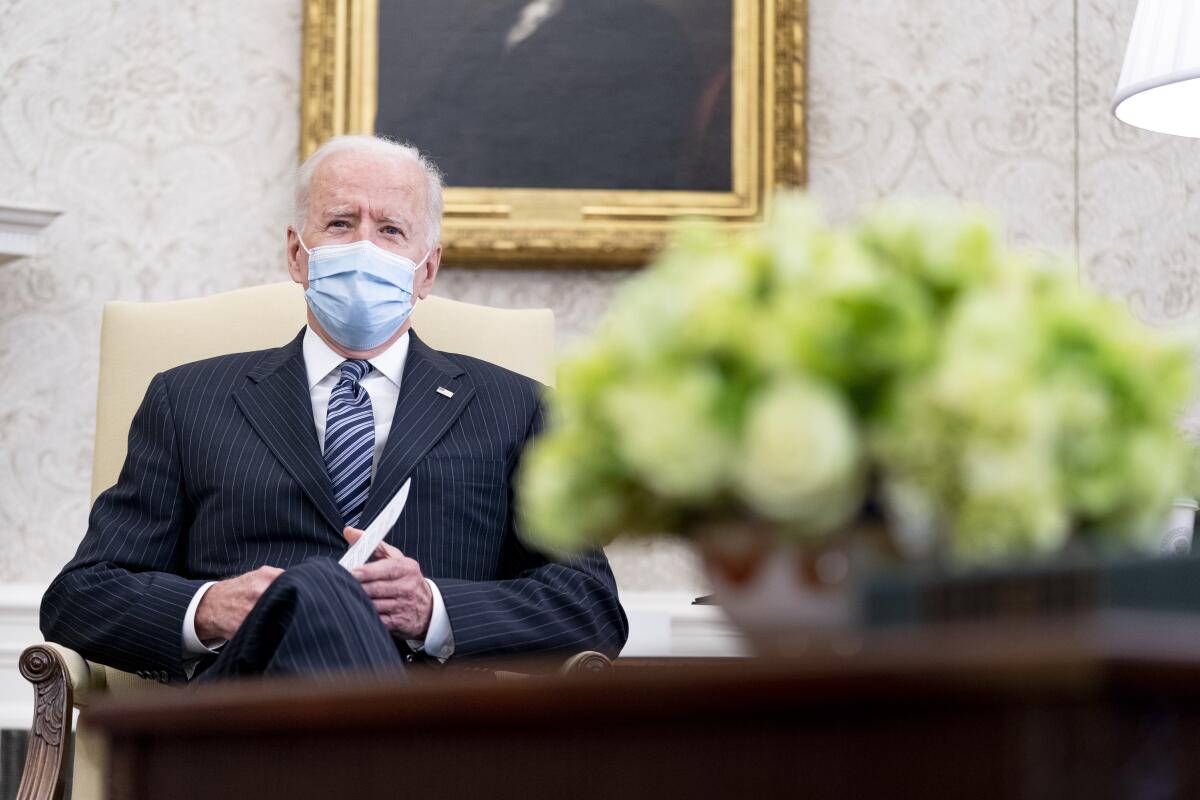
WASHINGTON — The administration is weighing how to handle the upcoming verdict in the trial of former Minneapolis Police Officer Derek Chauvin, including considering whether President Biden should address the nation and dispatching specially trained community facilitators from the Justice Department, aides and officials told The Associated Press.
Closing arguments began Monday in Chauvin’s trial with a prosecutor telling jurors that the officer “had to know” he was squeezing the life out of George Floyd as he cried over and over that he couldn’t breathe and finally fell silent. Chauvin faces murder and manslaughter charges.
The plans for possible presidential remarks are still fluid, with the timing, venue and nature of the remarks still being considered, in part depending on the timing of the verdict, according to two White House aides who were not authorized to speak publicly about private conversations and spoke to the AP on condition of anonymity.
The White House has been warily watching the trial proceed in Minneapolis — and then another shooting of a Black man by a white police officer last week — and are preparing for the possibility of unrest if a guilty verdict is not reached in the trial. Biden may also speak after a guilty verdict, the White House aides said.
Attorneys in the trial of the former Minneapolis police officer charged with killing George Floyd made closing arguments Monday before the case went to the jury.
The verdict — and the aftermath — will be a test for Biden, who has pledged to help combat racism in policing, helping Black voters who supported him in large numbers last year in the wake of protests that swept the nation after Floyd’s death and restarted a national conversation about race. But he also has long projected himself as an ally of police, who are struggling with criticism about long-used tactics and training methods and difficulties in recruitment.
Press secretary Jen Psaki said Monday that the White House has had a “range of conversations” about preparations for the upcoming verdict and added, “Our objective is to ensure there is space for peaceful protest.”
“Of course we’ll let the jury deliberate and we’ll wait for the verdict to come out before we say more about our engagements,” Psaki said.
Psaki said administration officials have been in contact with leaders in Minnesota and in other cities and states that saw unrest after Floyd’s death last year.
Chief Michel Moore’s promises that the LAPD is prepared to facilitate demonstrations related to Derek Chauvin’s trial come at a high-stakes moment for the department.
She declined to answer if Biden would be “disappointed” if a not guilty verdict was reached.
Meanwhile, the FBI and the U.S. attorney’s office in Minnesota have been working with local officials to support law enforcement as they prepare for the possibility of unrest after the verdict, officials said.
And the Justice Department has also dispatched specially trained community facilitators ahead of a verdict, according to a senior Justice Department official. The official could not discuss the plans publicly and spoke to the AP on condition of anonymity.
The officials, part of the Justice Department’s Community Relations Service, tout themselves as “America’s Peacemaker” by mediating disputes in communities and holding listening sessions to help prevent future conflicts.
The case comes down to two key questions — whether Chauvin caused George Floyd’s death and whether his actions were reasonable — and each charge requires a different element of proof.
A federal civil rights investigation, separate from the trial, remains ongoing. Several witnesses were subpoenaed earlier this year to appear before a federal grand jury considering charges against Chauvin.
The Justice Department’s civil rights investigation has been focused on Chauvin and some of the witnesses, including other officers who worked with Chauvin, people familiar with the matter have told the AP.
Chauvin was prepared to plead guilty to third-degree murder in George Floyd’s death before then-Atty. Gen. William Barr personally blocked the plea deal last year. Barr rejected the deal in part because he felt it was too soon, as the investigation into Floyd’s death was still in its relative infancy, law enforcement officials said.
Across the country, police departments are also preparing for the possibility of rioting or other unrest, with some canceling vacation time and increasing the number of officers available for shifts. The federal government hasn’t detailed its plan in the event of widespread or sustained civil unrest.
Pentagon spokesman John Kirby said Monday that there has been a request from officials in Washington, D.C., for D.C. National Guard forces in the event there is civil unrest in the nation’s capital, and it is currently being reviewed by the Army. He said the Army secretary has the authority to approve any request for D.C. National Guard but did not have details on the request.
More to Read
Get the L.A. Times Politics newsletter
Deeply reported insights into legislation, politics and policy from Sacramento, Washington and beyond. In your inbox three times per week.
You may occasionally receive promotional content from the Los Angeles Times.
